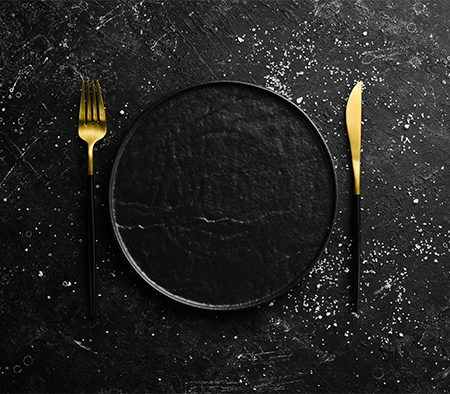No one asks for an eating disorder. No one chooses to develop an eating disorder. No one does a thing that makes an eating disorder take place.
Eating disorders happen, but never by virtue of choice.
Recovery happens by virtue of countless choices.
– Anna Sweeney, MS, RD, LDN, CEDRD-S
 They affect different people in different ways.
They affect different people in different ways.
Anna* no longer has an interest in sweets and other carbohydrates.
LaShonda* is so weak she can’t hold the heavy doors at school open.
Dee* insists on making all her food from scratch.
Chandra* exercises in the bathroom.
Hannah* thinks her tiny belly is bulging.
Jose* thinks if he eats less and exercises more, he will be a better athlete.
Chris* refuses to eat at the table with his family.
Deidre’s* hair is falling out, and she has missed her period.
John* doesn’t like his hips.
Rachael* thinks her breasts are fatty.
Leslie’s* pediatrician reports that she has lost weight too rapidly.
Most behaviors serve a purpose, including eating disorders.
Understanding this is the first step toward compassion and treatment.
For some people, how, what, and when they eat may feel like the only thing they can control and change.
The less they eat, the more successful they feel. It gives them a sense of accomplishment. It’s a challenge they can win.
These behaviors, however maladaptive, can give them a sense of purpose… an identity. Or they might give them a sense of “beauty” and acceptance in a group that’s important to them.
 Recovery from eating disorders is possible with professional help.
Recovery from eating disorders is possible with professional help.
But it’s critical to seek treatment early – before in-patient care is required. Eating disorders can be fatal in their late stages.
Together, we will figure out where you are on the eating disorder spectrum and what level of help you need.
I will evaluate if an individual or family therapy can help you. This will depend on your physical health, support system, and mental ability to accept help.
If you are starving or have abnormal vital signs, I will help you access the necessary care. Once you’ve physically recovered, I’ll celebrate this accomplishment with you.
And if you’re well enough for outpatient treatment…
We’ll figure out what led you to develop a dangerous relationship with food. The answer is within you.
Many people who have recovered from eating disorders say their illness functioned as a companion, someone telling them they were not “good enough” unless they ate this or didn’t eat that – or ate this or that amount at this or that time…
Professionals have compared this disorder to internal domestic violence because it’s like an abusive, destructive relationship!
As we develop trust, I will ask you to tell me your life story. As I wrote earlier, your relationship with food has served a purpose, which has made you feel better sometimes.
But there is a healthier way, and we’ll find it together.
You are not your eating disorder!
Together, we’ll find a way to leave this abusive relationship. You will realize that you deserve to be loved and respected for who you are. I believe that is truly what you want.
Please, don’t be scared. I understand this is tough stuff, and letting go is never easy.
But I also know you can do it… and you can live a healthier life.
Please call me for your free consultation today. Let’s talk more about how I can help: (843) 779-6514.
*Names do not reflect actual clients.
